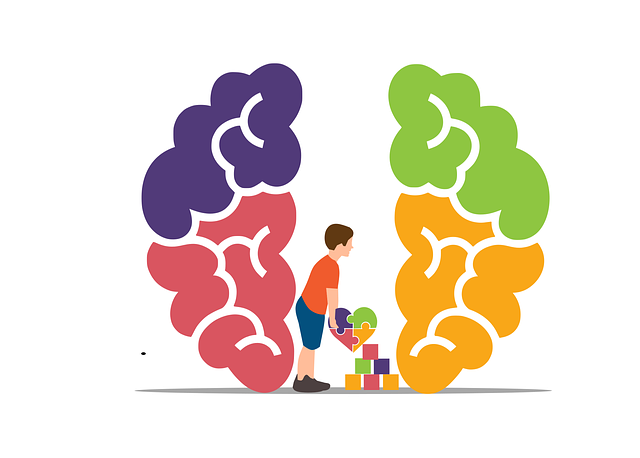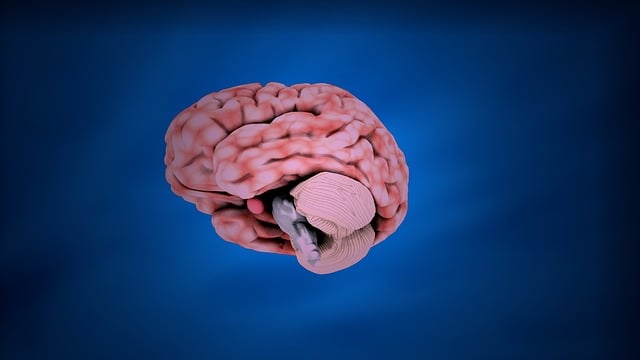Adolescence requires support, and RFM (Resilience, Flexibility, Mood Management) therapy offers a powerful framework for empowering teens to navigate emotions. Targeting peer pressure, academic stress, and identity formation, RFM teaches mood management, adaptability, and risk planning. This enhances mental well-being and strengthens the parent-teen relationship through improved parenting skills. Therapy includes positive thinking techniques and mindfulness meditation. Cultural competency in parenting ensures tailored support for diverse families. Overcoming challenges, effective crisis guidance, empathy building, and measured success are key to successful RFM programs, enhancing both teen resilience and family dynamics.
“Uncover the transformative power of RFM (Resilience, Flexibility, and Motivation) as a therapy for adolescent teens. This comprehensive guide explores how implementing resilience-building exercises can empower teens to navigate life’s challenges. From understanding the impact of RFM on emotional well-being to identifying tailored activities, we delve into effective parenting skills that foster resilience. Discover the numerous benefits, including improved coping mechanisms and enhanced emotional resilience in teens. Additionally, learn strategies for overcoming implementation challenges and measuring the success of RFM programs.”
- Understanding RFM and Its Impact on Adolescent Teens
- Identifying Resilience Building Exercises for Teens
- Strategies for Implementing Effective Parenting Skills
- Benefits of RFM in Enhancing Teen Emotional Resilience
- Overcoming Challenges and Measuring Success in RFM Programs
Understanding RFM and Its Impact on Adolescent Teens

Adolescence is a pivotal period of development, and understanding how to support teens through this phase is crucial. This is where RFM (Resilience, Flexibility, and Mood Management) comes into play as an effective framework for helping young individuals navigate their emotions and build resilience. By focusing on these three key aspects, mental health professionals can empower adolescent teens to develop inner strength and coping mechanisms that will serve them well throughout their lives.
RFM therapy targets the unique challenges faced by teens, such as peer pressure, academic stress, and identity formation. It teaches them effective strategies for mood management, enabling them to regulate their emotions healthily. This process fosters adaptability, allowing teens to navigate life’s ups and downs with flexibility. Additionally, risk management planning is integrated into RFM practices, equipping adolescents with the tools to make informed decisions and mitigate potential risks, thereby enhancing their overall mental well-being and parent-teen relationship through improved parenting skills.
Identifying Resilience Building Exercises for Teens

Identifying Resilience Building Exercises for Teens is a crucial step in their overall development and well-being. As adolescents navigate the complexities of growing up, incorporating activities that foster resilience can significantly enhance their ability to cope with life’s challenges. Therapy for adolescent teens often includes teaching them positive thinking techniques and mindfulness meditation practices, which have been proven effective in building mental fortitude. These exercises empower teens by equipping them with tools to manage stress, regulate emotions, and maintain a sense of calm amidst adversity.
Parenting skills play a vital role in this process. When parents are trained in cultural competency through programs focused on healthcare provider education, they become better equipped to support their teen’s resilience journey. By modeling and encouraging healthy coping mechanisms, such as open communication, problem-solving strategies, and emotional awareness, parents can create an environment conducive to their teens’ growth and development.
Strategies for Implementing Effective Parenting Skills

Teaching effective parenting skills is a powerful tool for fostering resilience in adolescent teens. Therapy sessions can equip parents with strategies to navigate challenging behaviors and promote healthy development. One approach involves utilizing mind over matter principles, encouraging parents to reframe negative thoughts and adopt positive affirmations. This mindset shift empowers them to respond calmly under stress, setting a peaceful tone at home.
Cultural sensitivity in mental healthcare practice is also essential. Therapists should recognize and respect diverse family dynamics and values, tailoring their teaching to each unique context. By incorporating resilience-building exercises that align with cultural norms, parents feel more engaged and empowered to apply these skills consistently. This holistic approach ensures that parenting techniques are not only effective but also culturally responsive, enhancing the overall therapeutic experience for both parent and adolescent teen.
Benefits of RFM in Enhancing Teen Emotional Resilience

Resilience is a vital asset for adolescent teens navigating the challenges of growing up. Implementing RFM (Resourceful Front-End Management) techniques offers a powerful approach to enhancing their emotional resilience, fostering better mental health awareness, and preventing burnout. This evidence-based strategy focuses on empowering teens with effective coping mechanisms and stress management skills, allowing them to face adversity head-on. By incorporating RFM into therapy for adolescent teens, parents can play a crucial role in supporting their children’s mental well-being.
The benefits extend beyond individual resilience; they positively impact the parent-teen relationship. When parents learn and practice RFM strategies, they become more attuned to their teen’s emotional needs, fostering open communication and strengthening bonding. This not only helps teens develop effective coping mechanisms but also equips them with valuable life skills, enabling them to thrive in various situations. Mind over matter principles are at the core of this process, encouraging teens to perceive challenges as opportunities for growth rather than insurmountable obstacles.
Overcoming Challenges and Measuring Success in RFM Programs

Overcoming Challenges is a crucial step in successful RFM (Resilience, Flexibility, and Maturity) program implementation. These programs, designed to enhance parenting skills and mental health among adolescent teens, often face obstacles such as resistance from participants or limited access to resources. However, with effective Crisis Intervention Guidance, these challenges can be navigated. Building empathy and fostering an understanding of each teen’s unique circumstances is key to gaining their trust and commitment. By integrating Empathy Building Strategies within the program framework, facilitators create a supportive environment that encourages open communication and vulnerability—essential for meaningful therapy.
Measuring success in RFM initiatives goes beyond attendance or completion rates. It involves assessing the impact on participants’ lives through Mental Health Policy Analysis and Advocacy. Observing improvements in teens’ emotional regulation, problem-solving abilities, and overall resilience indicates successful program outcomes. Long-term follow-ups can further validate these gains, demonstrating the lasting effects of enhanced parenting skills on adolescent development. Such measurements not only guide future program enhancements but also contribute to the broader Mental Health Policy Analysis and Advocacy efforts.
The implementation of Resilient Factor Model (RFM) and resilience-building exercises presents a promising approach to enhancing the emotional well-being of adolescent teens. By equipping parents with effective parenting skills, these strategies foster a supportive environment that promotes teen resilience. The benefits are multifaceted, ranging from improved emotional regulation to better coping mechanisms in challenging situations. As RFM gains traction in therapy for adolescent teens, continuous evaluation and adaptation of programs will be crucial to measure success and overcome potential challenges. This holistic approach ensures that today’s young adults develop the necessary tools to navigate life’s complexities with strength and perseverance.










